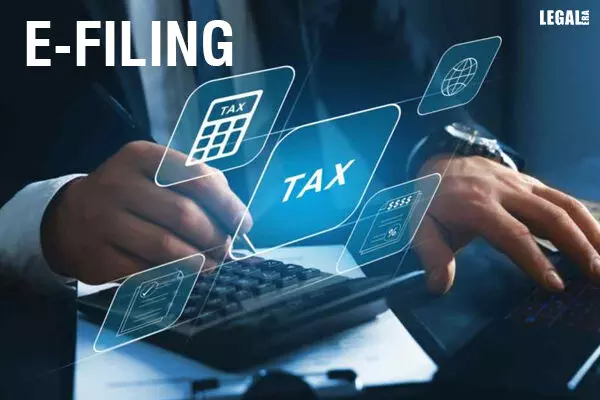- Home
- News
- Articles+
- Aerospace
- Agriculture
- Alternate Dispute Resolution
- Banking and Finance
- Bankruptcy
- Book Review
- Bribery & Corruption
- Commercial Litigation
- Competition Law
- Conference Reports
- Consumer Products
- Contract
- Corporate Governance
- Corporate Law
- Covid-19
- Cryptocurrency
- Cybersecurity
- Data Protection
- Defence
- Digital Economy
- E-commerce
- Employment Law
- Energy and Natural Resources
- Entertainment and Sports Law
- Environmental Law
- FDI
- Food and Beverage
- Health Care
- IBC Diaries
- Insurance Law
- Intellectual Property
- International Law
- Know the Law
- Labour Laws
- Litigation
- Litigation Funding
- Manufacturing
- Mergers & Acquisitions
- NFTs
- Privacy
- Private Equity
- Project Finance
- Real Estate
- Risk and Compliance
- Technology Media and Telecom
- Tributes
- Zoom In
- Take On Board
- In Focus
- Law & Policy and Regulation
- IP & Tech Era
- Viewpoint
- Arbitration & Mediation
- Tax
- Student Corner
- AI
- ESG
- Gaming
- Inclusion & Diversity
- Law Firms
- In-House
- Rankings
- E-Magazine
- Legal Era TV
- Events
- News
- Articles
- Aerospace
- Agriculture
- Alternate Dispute Resolution
- Banking and Finance
- Bankruptcy
- Book Review
- Bribery & Corruption
- Commercial Litigation
- Competition Law
- Conference Reports
- Consumer Products
- Contract
- Corporate Governance
- Corporate Law
- Covid-19
- Cryptocurrency
- Cybersecurity
- Data Protection
- Defence
- Digital Economy
- E-commerce
- Employment Law
- Energy and Natural Resources
- Entertainment and Sports Law
- Environmental Law
- FDI
- Food and Beverage
- Health Care
- IBC Diaries
- Insurance Law
- Intellectual Property
- International Law
- Know the Law
- Labour Laws
- Litigation
- Litigation Funding
- Manufacturing
- Mergers & Acquisitions
- NFTs
- Privacy
- Private Equity
- Project Finance
- Real Estate
- Risk and Compliance
- Technology Media and Telecom
- Tributes
- Zoom In
- Take On Board
- In Focus
- Law & Policy and Regulation
- IP & Tech Era
- Viewpoint
- Arbitration & Mediation
- Tax
- Student Corner
- AI
- ESG
- Gaming
- Inclusion & Diversity
- Law Firms
- In-House
- Rankings
- E-Magazine
- Legal Era TV
- Events
Supreme Court: Purpose of E-Filling will be Defeated if ITATs insist on Filing of Appeals in Physical Mode

Supreme Court: Purpose of E-Filling will be Defeated if ITATs insist on Filing of Appeals in Physical Mode
The Supreme Court has directed the Income Tax Appellate Tribunal (ITAT) to ensure that appeals are filed only in e-filing mode and not the physical mode.
The three judges bench comprising of Chief Justice of India (CJI) Dr. DY Chandrachud, Justice PS Narasimha, and Justice JB Pardiwala were hearing an appeal filed the matter of CCE & ST, Surat I v. Bilfinder Neo Structo Construction Ltd., seeking to streamline integration of all stages in government revenue litigation through technology.
The Additional Solicitor General (ASG) Balbir Singh appearing for the Union of India, ensuing the previous order of the Apex Court, placed a note tendered on behalf of the Union Government in respect of the steps which have been taken for ensuring e-filing of appeals by the Department before the High Courts and Tribunals.
The note contained the following status position:
1. E-filing of appeals has not been enabled in the High Courts of Allahabad, Uttarakhand, Karnataka, Andhra Pradesh, Guwahati, Manipur, Tripura, and Meghalaya;
2. Nearly 62% of the appeals by the revenue have been filed before the High Court in the e-filing mode which is expected to increase post directions by the Supreme Court;
3. Only 1% of appeals before the ITAT have been filed in the e-filing mode;
4. Even after e-filing, the ITAT is insisting on physical appeals;
5. 90.29% of cases falling under the jurisdiction of the Chief Commissionerates have been e-filed;
6. The e-filing module prepared by NIC for CESTAT had being tested during the first week of March 2023 and its module is undergoing security audit.
Thereafter, the CJI while noting the aforementioned aspects covered in the note passed the following order:
“Recently, a communication has been addressed by the Chief Justice of India to all the Chief Justices of the High Courts to facilitate the process of e-filing particularly appeals by the revenue and to gear up for the implementation of Phase 3 of the e-courts project. The registrar of this Court shall forward a copy of this order to the Registrars General of the High Courts of Allahabad, Uttarakhand, Karnataka, Andhra Pradesh, Guwahati, Manipur, Tripura, and Meghalaya so that necessary steps can be taken to facilitate e-filing at least of revenue appeals.”
The Court further added that as regards the ITAT, it was incumbent upon the Tribunal that appeals were filed only in e-filing and the target date of 30 June 2023 was fixed for the same. The Ministry of Finance was directed to depute a senior officer to engage with the President of the ITAT in this regard.
The Court observed, “the rules required to be amended should be amended to incorporate e-filing requirements. It would defeat the purpose if in addition to e-filing, the ITATs insist on filing of appeals in the physical mode.”
Furthermore, the Court went on to comment that in the event that there is an issue relating to the training of the members of the ITAT, it should be addressed immediately so that all the members of the Tribunals can manage the electronic filing of cases accordingly.



